Ten of the Best: 2021

Despite everything that’s been going on in the world, these past twelve months have been surprisingly good for fans of SFF. There have been a lot of excellent new books this year, and out of the twenty-three new releases I’ve managed to finish this year, almost all of them have earned themselves four stars or better on Goodreads. As always, picking the ten I feel best encapsulate what I consider to be the best of the year has been a bit of a tricky job, but I think I’ve managed it. Mostly.
So, without further ado, here are the top ten-ish genre books released in 2021.
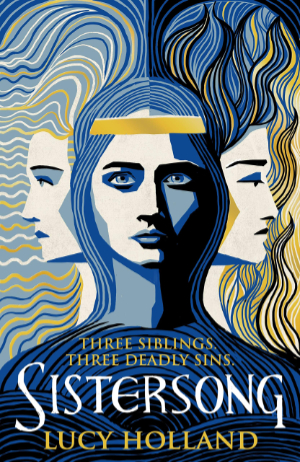
Sistersong (Lucy Holland)
This is one of those books that draws you in slowly, building up a setting and characters you can’t help but fall in love with, and then, just as you’re getting comfortable with the story, and you think you know where it’s all going, it pulls the rug out from under your feet and breaks your heart.
It’s a beautifully written retelling of an old folk ballad, The Twa Sisters, mixed with a handful of elements drawn from Arthurian mythlore, and absolutely jam-packed with gorgeously lyrical prose. It also has some pretty impressive queer representation woven into it that had me reaching for a hankie on more than one occasion. In fact, taken as a whole, this book is one massively emotional rollercoaster ride that I can’t recommend enough to fans of modern fantasy. If it hasn’t made it into your to-read pile yet, then I strongly urge you to seek a copy out now.
My rating: 5 of 5 stars
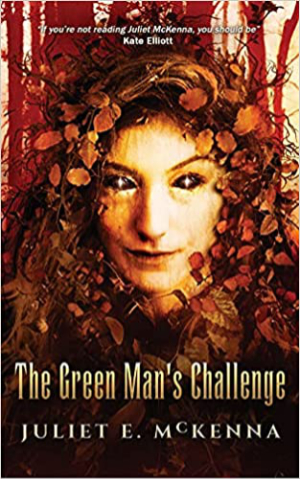
The Green Man’s Challenge
(Juliet E. McKenna)
The fourth book in McKenna’s Green Man series is every bit as good as the previous three, and may very well be my favourite so far. In this tale, our erstwhile hero Dan Mackmain finds himself being pitted against an ancient giant while simultaneously having to deal with the seemingly less-than-good intentions of a bunch of local hamadryads. And then there’s this creepy white horse that keeps turning up.
As with the other books in the series, the author weaves elements of traditional folklore together to create a convincingly authentic world where the supernatural and mundane meet in a story that trots along at a blinding pace. This is another one that I can’t recommend enough, though obviously if you haven’t read the earlier books then start with those.
My rating: 5 of 5 stars

Anna (Sammy H. K. Smith)
With Anna, Sammy H. K. Smith has written what seems to be one of the most contentious feminist novels of the year, if not of the last decade or so. It’s a dark tale of one woman’s journey through a land brought down by some half-explained apocalypse that has left everything and everyone in ruin, and to say that it’s a difficult book to read would quite possibly be the understatement of the century. This is most definitely not a book for the faint-hearted. The narrative deals with a lot of uncomfortable subjects, including sexual, emotional and physical abuse, which means it’s not a book you can easily read in one sitting.
Reviews for Anna seem to be split between those readers who absolutely loved it (though loved may not be the right word to use here), and those who absolutely hated it, with more than a few reviewers comparing it to earlier works such as The Handmaid’s Tale. Personally, I found it captivating, in a disturbing sort of way.
My rating: 4.5 of 5 stars | Read full review
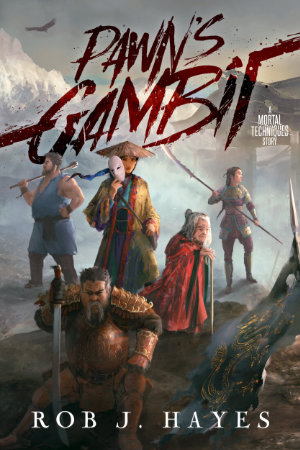
Pawn’s Gambit (Rob J. Hayes)
This is the second in Hayes’ Mortal Techniques series, and while not strictly a follow-up to 2019’s Never Die, it is set in the same world and does follow on chronologically from that earlier book. And it’s more than fair to say it’s every bit as good as its forerunner.
In this novel, we follow the trials and tribulations of the former general and strategist Daiyu Lingson, aka The Art of War, as she’s dragged into a mystical treasure hunt by the goddess Natsuko, goddess of missed opportunities and lost things. As with Never Die, the action is high octane and clearly wuxia-inspired, and the narrative rushes by at a breakneck pace. It’s advertised as a standalone novel, and you don’t have to have read the previous book to read this one, though if you have, it will certainly add to your enjoyment.
My rating: 5 of 5 stars | Read full review
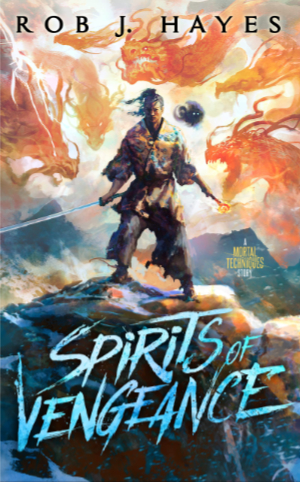
Spirits of Vengeance (Rob J. Hayes)
That’s right, Rob Hayes gets two books in this year’s top ten, and both from the same series. Spirits of Vengeance is the third (and so far final) book in the Mortal Techniques series, and like the previous two entries is ostensibly a standalone tale, though as with Pawn’s Gambit it does follow on chronologically from the others.
This time, the narrative focuses on a group of heroes led by the onmyoji spirit hunter Haruto as they race against the clock to stop a group of powerful spirits from awakening an ancient evil.
If I’m being honest I really can’t get enough of these books, and genuinely hope Hayes has a few more of them in him. Whether he does or not, I’m definitely going to be moving some of his other works to the top of my to-read pile in 2022.
My rating: 5 of 5 stars
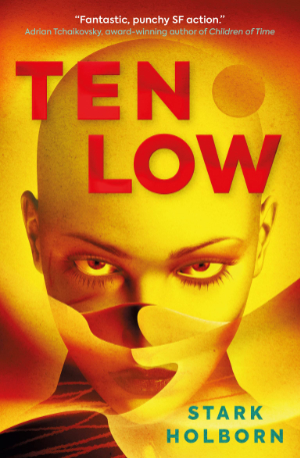
Ten Low (Stark Holborn)
Ten Low somehow manages to expertly ride the boundary between Firefly, Mad Max, and Dune, while at the same time being original enough to stay fresh and entertaining through every page and every chapter. It follows the exploits of an ex-army medic, the titular Ten Low herself, after she makes the mistake of rescuing a teenage girl from the wreckage of a downed spaceship on the desert moon of Factus.
This book’s a cracking read, and definitely one to look out for if you like sci-fi with just a hint of magic in it, and there’s a part of me that hopes to see more set in the same universe at some point. In the meantime, I’ll be digging into some of Holborn’s other works over the next twelve months, and keeping an eye out for anything new that might come along.
My rating: 4.5 of 5 stars
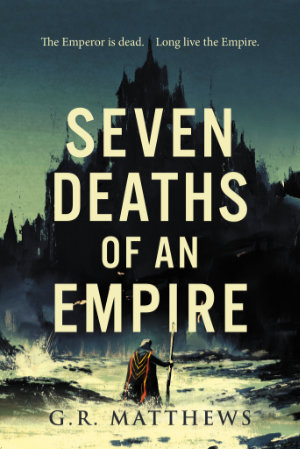
Seven Deaths of an Empire (G R Matthews)
Question: What do you get when you take the Roman conquest of Western Europe and throw in a sprinkling of magic, a soupçon of political intrigue, a bushel of royal assassinations, and an enemies-to-friends character development path? The answer is Seven Deaths of an Empire by G. R. Matthews.
I was lucky enough to read an ARC of this one ahead of its publication in June, and I pretty much fell in love with it from page one. It manages to move from world-spanning epic to intimate character-driven drama with ease, and keeps the twists and surprises coming all the way up to the final chapter. If you like your fantasy with more than a hint of historical influence, then this is definitely one for you.
My rating: 4.5 of 5 stars | Read full review
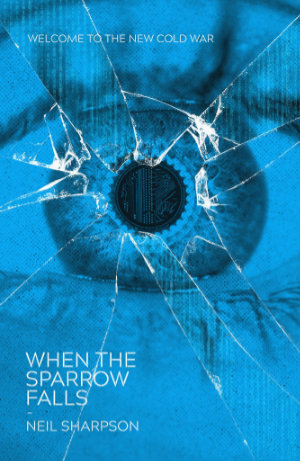
When the Sparrow Falls (Neil Sharpson)
When the Sparrow Falls clearly has its roots in equal parts classic pulp noir and modern post-cyberpunk SF, and boy does it work? Set in a technologically stunted enclave in a somewhat post-singularity world, it mixes political intrigue with a good old detective story to give us a frighteningly prescient glimpse at how easily totalitarianism can take hold of a nation if nobody’s really looking.
Based on the author’s own stage play, this is definitely one for fans of Philip K. Dick, William Gibson, or Pat Cadigan. In fact, if you’re even slightly curious about where cyberpunk has been heading lately, you couldn’t do much better than giving this one a shot.
My rating: 4.5 of 5 stars | Read full review
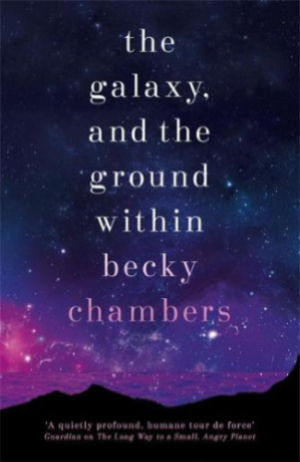
The Galaxy, and the Ground Within (Becky Chambers)
This is the last book in Chambers’ Wayfarers series, and if I’m being honest, it’s an absolutely fantastic book to end the series with. Set almost entirely on the airless surface of planet Gora, the story takes place during a minor catastrophe that leaves the disparate crews of a handful of spaceships stranded at a small interstellar truck stop run by an alien mother and her only child.
Unlike the previous books in the series, all the major characters in this book are non-human, and a wonderfully diverse bunch they are too. Stuck on the planet with nothing to do but wait, each of the five characters is forced to examine their past to come to terms with where they are and the path that stretches out ahead of them.
This is Becky Chambers at her best, and while I’m a little sad at the thought of not getting any more from this setting, I know I can always go back and revisit the series whenever I need a genuine comfort read.
My rating: 5 of 5 stars
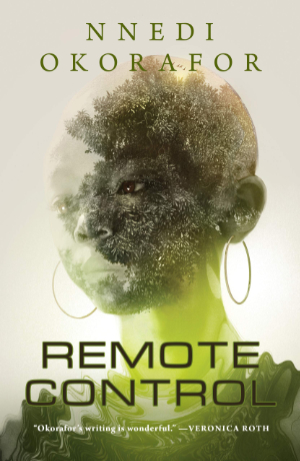
Remote Control (Nnedi Okorafor)
Remote Control is the tale of Sankofa, the fourteen-year-old Adopted Daughter of Death, and her journey through the dusty world of a futuristic Ghana. It is also the tale of seven-year-old Fatima, who would be forever changed by her connection to a strange seed that fell from the sky and took root beneath her parents’ shea tree. For Sankofa is Fatima, and Fatima is Sankofa.
This short novel explores the boundary between folklore and magical realism, while wrapping it in a science fiction shell. It captivates with its lyrical beauty, and draws the reader along, revealing gradually more of the world and background of the central character without getting bogged down in too much exposition. It truly is a gloriously wonderful read.
I’ve yet to find an author who writes quite like Nnedi Okorafor, and every one of her novels or novellas I’ve read has led me on a remarkable journey. Remote Control is no exception, and if this is Africanfuturism then I say give me more.
My rating: 4.5 of 5 stars
Honourable Mention – Fugitive Telemetry
The sixth book in Martha Wells’ Murderbot series is just as good as the other five. Set chronologically between books four (Exit Strategy) and five (Network Effect), it casts the eponymous hero in the role of detective after they find a dead body on Preservation Station. Full to the brim with Murderbot’s trademark snark and cynicism, this may not be the best in the series so far, but that doesn’t stop it being a fun little read in its own right.
My rating: 4.5 of 5 stars
Honourable Mention – Winter’s Orbit
Everina Maxwell’s debut space opera novel is nothing short of excellent. It’s mostly a political thriller wrapped around a mostly cosy M/M romance in a sci-fi setting, and if that doesn’t immediately catch your interest, then there’s a good chance you’re not the target audience. It’s one of the surprise hits of the year for me, and I’ll definitely be keeping an eye out for more from this author going forward.
My rating: 4.5 of 5 stars
So there we are, ten definite must-reads and two almost-rans to look out for if you haven’t already read them. I was recently asked to name my book of the year, and I ended up going with Sistersong, but if I’m being honest, all ten of the books on the main list above are indicative of the state of the genre right now. Hopefully, this will continue for many years to come.
Looking forward to 2022
Speaking of years to come, what wonders do we have lined up for 2022? Well, I’m definitely looking forward to Blood Legacy by Tej Turner, the second in his Avatars of Ruin series. I’m also eager to get my hands on Gareth L. Powell’s new book, Stars and Bones, especially as it’s been touted as ideal for fans of Becky Chambers and Ann Leckie.
My pre-orders are already stacking up, with Seven Mercies from Laura Lam and Elizabeth May coming up in January, Ogres from Adrian Tchaikovsky in March, and Spear from Nicola Griffith in April. Further ahead, there’s a new Guy Gavriel Kay on the horizon, as well as Becky Chambers’ second Monk and Robot book. And then there’s the long-awaited final volume of Tad Williams’ Last King of Osten Ard, though if the news I’ve been reading is to be believed, that may end up being released as two volumes.
Yep, 2022 is already looking exciting for sci-fi and fantasy readers, so let’s welcome the new year with hope and a smile, and see what new worlds await us over that next horizon.